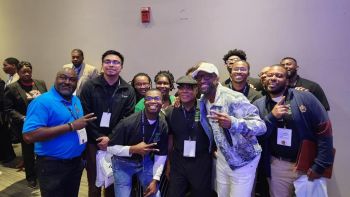“Once you show you’re really out there with them, you gain trust,” said Wilbur, “but sometimes the participants never even see the investigators.”
READ: Slavery & The Traumatic Roots Of Modern Gynecology
Other leading experts are saying it’s a matter of medical apartheid. Usually participants in these studies are recruited from collegiate populations. In predominantly African American communities we generally don’t have access to these institutions where they’re pulling these participants from and if we are there are challenges beyond our realm of control at times.
Jill Fisher, an associate professor in the Center for Bioethics at the University of North Carolina, Chapel Hill says access to these studies isn’t the problem, it’s the lack of effort.
“Generally speaking, there’s a segregated healthcare system,” Fisher said. “It’s really not a question of who’s willing to participate. It’s who’s being asked.”
Educators like Wilbur, who works in the Black community, goes the extra distance to make sure that her presence is known in the community as more than just a doctor collecting data for her research project. This cardiovascular health expert recruits in local beauty shops patronized by Black women, provides babysitting services to eliminate the barrier of not being able to come to the studies because of child-care concerns and she attends a Black church in the community.
For every Wilbur there are countless studies still being produced that don’t reflect the Black experiences and challenges in healthcare. Just as college taught you to critically analyze the sources before assuming something as truth, do the same thing with your medical information. Is it for you or for them?
Why Are Black People Missing From Health Studies? was originally published on blackdoctor.org















